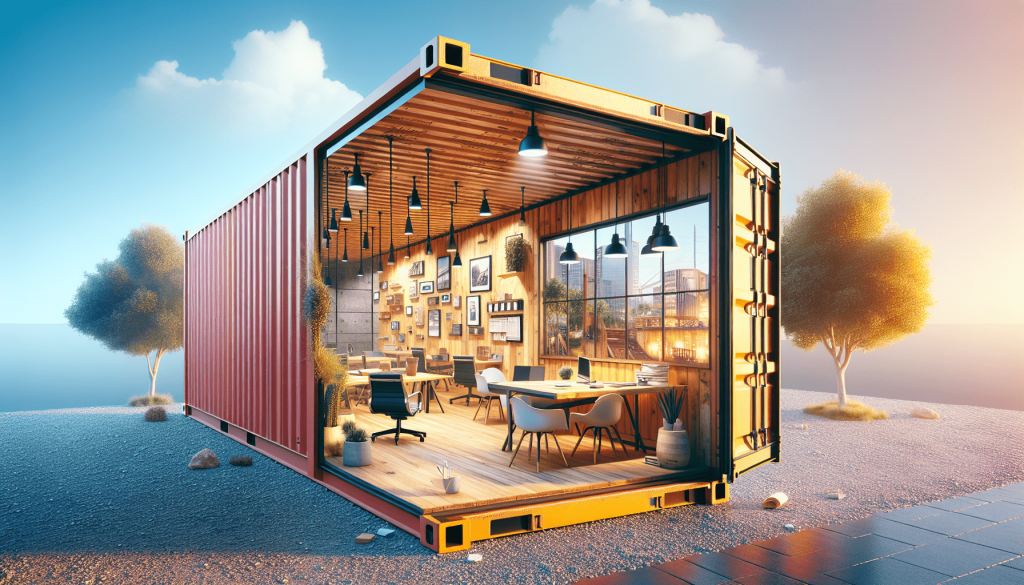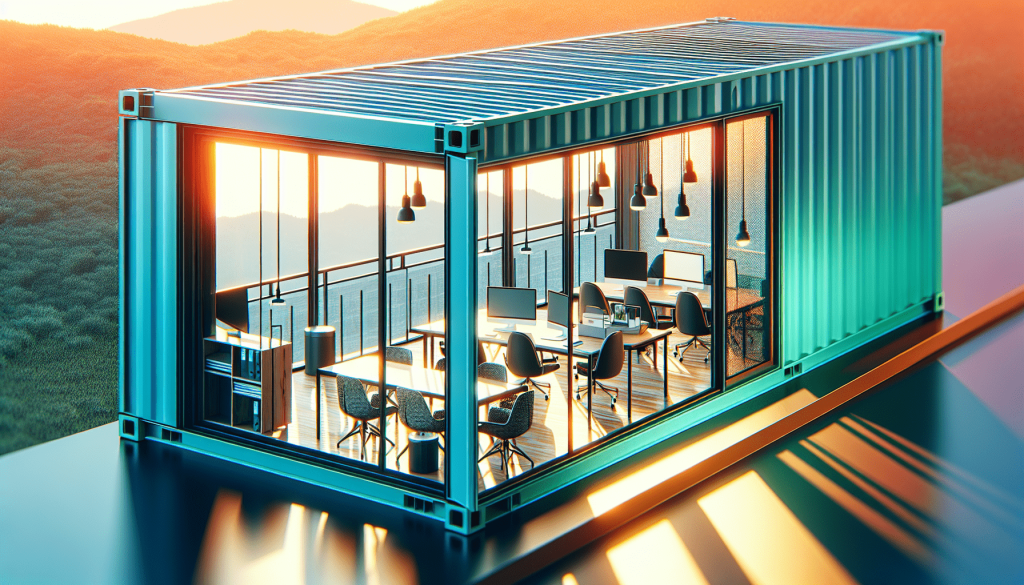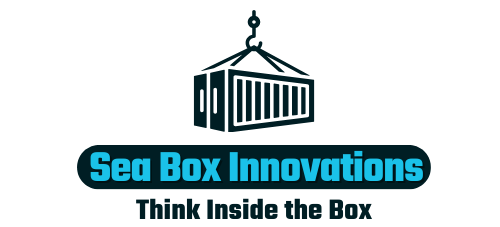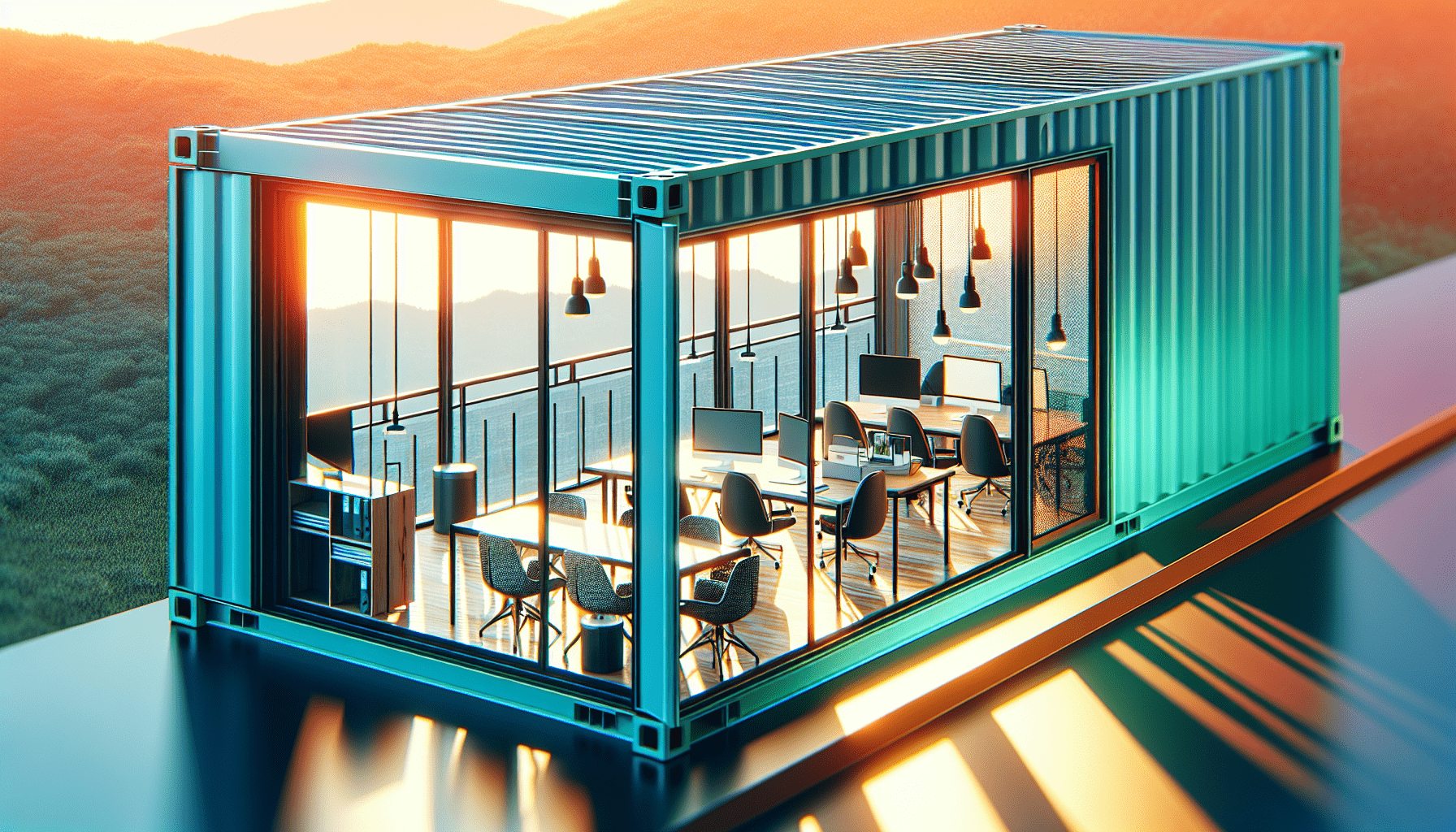Have you ever wondered what those portable, modular office spaces made from shipping containers are actually called? Well, wonder no more! In this article, we will explore the term commonly used to refer to these unique and innovative office setups. Whether you’re curious about transforming a shipping container into your own workspace or simply want to expand your knowledge, keep reading to discover the name associated with these container offices.
Definition of a Container Office
Overview
A container office, also known as a shipping container office, mobile office container, portable office container, or modular office container, is a structure made from repurposed shipping containers that have been modified for use as office spaces. These containers are typically designed to provide a functional and comfortable workspace for various industries and applications. Container offices offer a cost-effective, modular, and portable solution for companies in need of temporary or flexible office spaces.
Features
Container offices can vary in size and layout, but they generally feature a secure and weatherproof structure, complete with doors, windows, and electrical and plumbing systems. These offices can be customized to include various amenities, such as restrooms, kitchenettes, meeting rooms, and storage areas. Additionally, container offices can be designed to accommodate specific needs, such as soundproofing for quiet work environments or insulation for extreme weather conditions.
Advantages
Container offices offer several advantages over traditional office spaces. Firstly, they are cost-effective, as the use of repurposed shipping containers significantly reduces construction and material costs. Moreover, container offices are modular and scalable, allowing for easy expansion or relocation as business needs change. These offices are also highly mobile and portable, making them ideal for construction sites, remote workstations, temporary office spaces, and event facilities. Additionally, container offices can be quickly constructed and set up, reducing downtime and increasing productivity for businesses in need of immediate office solutions.
Popular Terminology for Container Offices
Shipping Container Office
A shipping container office refers to a container that has been converted into a functional office space. These containers are typically made from durable steel and have been used to transport goods internationally. By repurposing these containers, they can serve as an affordable and versatile office solution.
Mobile Office Container
A mobile office container is specifically designed to be easily transported and relocated. These containers are equipped with features that allow for mobility, such as wheels or trailer attachments. Mobile office containers are often used in industries where projects require frequent moves or where temporary office spaces are needed.
Portable Office Container
Similar to mobile office containers, portable office containers are designed to be easily transported and set up. These containers are typically lightweight and can be disassembled and reassembled with minimal effort. Portable office containers are ideal for situations where quick deployment and mobility are essential.
Modular Office Container
Modular office containers are composed of multiple pre-built modules that can be combined to create larger office spaces. These modules can be interconnected to form spacious and well-designed environments. The modular approach allows for easy customization and future expansion of the office space as needed.

Container Office Construction
Conversion Process
The conversion process of a shipping container into an office space involves multiple steps. Firstly, any existing cargo doors or openings on the container are sealed off, leaving only designated entry points. Then, structural modifications are made to ensure the container meets safety and comfort requirements. Finally, interior design and layout are addressed to create a functional and aesthetically pleasing workspace.
Structural Modifications
Structural modifications play a crucial role in converting a container into a comfortable office space. These modifications include adding insulation, reinforcing the container’s structure, installing windows, doors, and electrical and plumbing systems. The goal is to transform the container into a safe and functional environment that meets the necessary standards for office use.
Insulation and HVAC
Insulation is a vital aspect of container office construction, as it helps regulate temperature, minimize noise, and enhance energy efficiency. Various insulation materials can be used, such as foam, fiberglass, or reflective coatings. Additionally, HVAC (Heating, Ventilation, and Air Conditioning) systems can be installed to ensure proper climate control and air quality within the office space.
Interior Design and Layout
The interior design and layout of a container office should be carefully planned to create a comfortable and functional workspace. This includes considering the placement of furniture, workstations, storage areas, and amenities such as restrooms, kitchens, and meeting rooms. Attention should also be given to lighting, acoustics, and overall aesthetics to create a conducive work environment.
Uses and Applications of Container Offices
Construction Sites
Container offices are commonly used on construction sites to provide a designated workspace for contractors and project managers. These offices can be easily transported to different locations as the project progresses and can be customized to include necessary amenities and storage space for construction equipment and documents.
Remote Workstations
In industries that require employees to work in remote or isolated locations, container offices provide a practical and convenient solution. They can be equipped with all the necessary facilities and amenities to ensure a comfortable working environment, even in areas with limited infrastructure.
Temporary Office Spaces
Container offices are an excellent option for companies in need of temporary office spaces, such as during relocations, renovations, or special projects. Their mobility and ease of set-up make them a flexible choice for short-term office needs.
Event Facilities
Container offices can be transformed into functional event facilities, such as ticket booths, pop-up shops, registration areas, or food and beverage kiosks. Their modular design allows for customization and branding opportunities, providing a unique and versatile space for various events.

Advantages of Container Offices
Cost-Effective
One of the significant advantages of container offices is their cost-effectiveness. Repurposing shipping containers significantly reduces construction costs compared to traditional office spaces. The use of pre-existing structures also eliminates the need for extensive foundation work. Additionally, the modular nature of container offices allows for efficient space utilization and future expansion without excessive expenses.
Modularity and Scalability
Container offices are highly modular and scalable, which means they can be easily customized and expanded as needed. Multiple containers can be joined together to create larger office spaces or rearranged to meet changing requirements. This flexibility makes container offices a practical option for businesses that experience fluctuating workforce sizes or evolving office needs.
Mobility and Portability
Container offices are designed with mobility and portability in mind. They can be easily transported to different locations, allowing businesses to set up temporary offices in various settings. Portable and mobile options are available, providing even greater flexibility for organizations that require frequent relocation or remote site operations.
Quick Construction and Set-Up
Container offices can be quickly constructed and set up, significantly reducing the time and effort required to establish a functional workspace. With many of the structural modifications and installations already completed during the conversion process, container offices can be ready for use in a fraction of the time compared to traditional construction projects. This quick turnaround time allows businesses to minimize downtime and start operations promptly.
Considerations When Choosing a Container Office
Size and Layout
When choosing a container office, it is essential to consider the size and layout that best suits the intended use and available space. Determine how many employees will need to be accommodated, as well as the required amenities and storage areas. Careful planning ensures that the container office meets all functional and spatial requirements.
Conditions and Quality
Inspect the condition and quality of the container before making a decision. Look for indications of structural integrity, such as any signs of rust, leaks, or damage. Work with reputable suppliers who thoroughly inspect and refurbish the containers to ensure they meet safety and quality standards.
Customization Options
Consider the customization options available for the container office. Determine if specific modifications, such as additional windows, partitions, or specialized electrical or plumbing installations, can be easily accommodated. Discuss your needs with the supplier to ensure they can deliver a container office that meets your specific requirements.
Delivery and Installation Logistics
Evaluate the logistics of delivery and installation when selecting a container office. Consider factors such as access to your site, any permits or special requirements for transportation, and the expertise of the supplier in handling the delivery and installation process. A well-coordinated delivery and installation can save time and minimize disruptions to your operations.
Container Office Suppliers
Specialized Manufacturers
Specialized manufacturers focus on producing container offices specifically designed for office use. These suppliers have expertise in converting shipping containers and offer a range of customization options and layouts tailored to meet office requirements. They often have extensive experience in delivering high-quality and functional container offices.
General Shipping Container Suppliers
General shipping container suppliers may also offer container offices in their inventory. While they may not specialize solely in office spaces, they can provide a wide selection of shipping containers that can be converted for office use. These suppliers typically offer both new and used containers, providing affordable options for businesses with varying budgets.
Leasing and Rental Companies
For organizations that need a container office for a short period or prefer not to make a long-term investment, leasing and rental companies offer convenient solutions. These companies often have a fleet of container offices available for rent, allowing businesses to access temporary office spaces without the commitment of purchasing or long-term ownership.
Regulations and Permits for Container Offices
Zoning and Land Use
Before installing a container office, it is important to understand local zoning and land use regulations. Check with local authorities to ensure that container offices are permitted for the intended location. Some areas may have specific restrictions on the use and placement of container structures.
Building Codes and Safety Regulations
Container offices must comply with building codes and safety regulations to ensure the well-being of the occupants. When choosing or constructing a container office, work with suppliers or contractors knowledgeable about these regulations to ensure all necessary standards are met. Factors such as fire safety, electrical wiring, accessibility, ventilation, and structural stability must be taken into consideration.
Permitting Procedures
Obtaining the necessary permits for the installation and use of a container office is crucial. The specific permitting procedures may vary depending on the location and intended use of the office space. Consult with local authorities to understand the required permits and documentation needed to comply with regulations.
Alternative Office Solutions
Prefabricated Offices
Prefabricated offices are another alternative to traditional office spaces. These are built off-site and transported to the desired location for assembly. Prefabricated offices offer flexibility, quick construction, and customizable options. However, they may not provide the same mobility and cost-effectiveness as container offices.
Modular Buildings
Modular buildings are structures composed of multiple pre-built modules that are assembled on-site. Similar to container offices, modular buildings offer modularity, scalability, and customization options. They can provide larger office spaces and may be a suitable solution for businesses with long-term office needs.
Traditional Office Spaces
While container offices offer unique advantages, traditional office spaces remain a popular option for many businesses. Traditional office buildings provide a professional environment and often come equipped with amenities and facilities tailored to specific industry needs. However, they are typically more expensive and lack the flexibility and mobility provided by container offices.
Future Trends in Container Offices
Integration of Sustainable Technologies
As sustainability becomes increasingly important, container offices are likely to incorporate green technologies. This could include solar panels, rainwater harvesting systems, energy-efficient lighting, and eco-friendly insulation materials. These sustainable features not only contribute to a greener workspace but also lead to long-term cost savings.
Smart Office Features
The future of container offices may involve the integration of smart technologies. This could include automated climate control systems, motion-sensor lighting, smart locks, and advanced communication and security systems. These features enhance convenience, productivity, and security for employees working in container office spaces.
Innovative Design Concepts
The design of container offices is expected to evolve as architects and designers explore innovative concepts. This could include multi-level container structures, interconnected container modules, vertical gardens, and adaptable interiors. Creative and functional design concepts will continue to push the boundaries of container office aesthetics and functionality.
In conclusion, container offices offer a cost-effective, modular, and portable solution for businesses in need of temporary or flexible office spaces. They can be used in a variety of applications, such as construction sites, remote workstations, temporary office spaces, and event facilities. With advantages including cost-effectiveness, modularity, mobility, and quick construction, container offices are an attractive option for businesses looking for practical and adaptable office solutions. When choosing a container office, considering factors such as size, condition, customization options, and delivery logistics is important. Additionally, understanding regulations and permits, exploring alternative office solutions, and staying updated with future trends can help businesses make informed decisions when it comes to container offices.

I am James, the creator behind SeaBoxInnovations.com. Welcome to our premier online destination dedicated to the world of sea containers. Think Inside the Box is our tagline, and our website is your go-to source for exploring the endless potential of these versatile and adaptable containers. Whether you’re interested in purchasing, customizing, or learning about the latest trends in container architecture and design, we have you covered. Join us as we bridge the gap between traditional uses and cutting-edge applications, promoting sustainability and innovation in design and construction. Get ready to embark on your next big project with SeaBoxInnovations.com.

